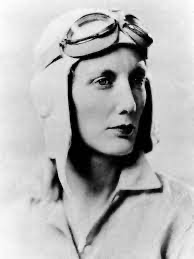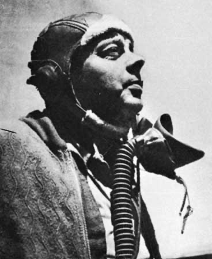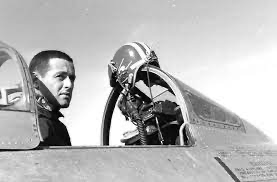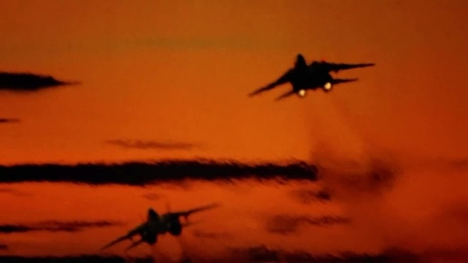I love the huge adrenaline rush of Top Gun’s opening flight deck sequence. With Kenny Loggins’ Danger Zone pounding in the background, I can smell the JP-4, notice my heart rate accelerate, feel the engines spool up, and scrunch back in my seat waiting for the kick of the catapult. I get sucked in by the air-to-air training exercises, the oiled-up volleyball porn, “the need for speed” nonsense and Maverick and Goose singing You’ve Lost That Lovin’ Feeling. It’s the real McCoy, even if Tom Cruise is an imposter and the majority of the film is a Navy puff-piece.
I’m often asked why I don’t write about flying, since it’s taken up a large part of my life. It’s probably because it doesn’t seem relevant to who I am now. I wasn’t a kid who loved airplanes. I didn’t hang around airports hoping for a ride and yearning to get my license. I was going to get drafted and thought flying jets would be better than chipping paint on a Navy destroyer or crawling through the mud in Carolina swamp. Flying was an adventure choice not a career path, and when it was over it was over.
My friend Laura wants me to write about those white scarf and Ray Ban days, and she may have a point. One of the cardinal rules for writers is “Write what you know,” and flying is part of what I know. I can’t quite explain my reticence. Military flying is fueled by adrenaline but that doesn’t necessarily mean it will make a good story. There are so few writers who’ve done it well. Many have tried but only a handful have spun literary gold out of the experience. There are the romantic “slip the surly bonds of earth” writers and the macho “nuke ‘em back to the stone age” writers but only a few who have integrated flying in a story with literary value.
Beryl Markham is not a name most people recognize today, but Ernest Hemingway told his editor Maxwell Perkins that “she can write rings around all of us who consider ourselves as writers.” I agree. She is one of three or four writers I know who managed to blend aviation credentials with serious literary intention. What I admire most about her memoir West with the Night is the simple, cogent, articulate prose – all in service to her story.

But Beryl Markham brought a world of experience to her writing. Raised on a farm in Kenya, she spent years as a bush pilot and racehorse trainer before setting her sights on a westbound Atlantic crossing. She accomplished it nine years after Lindbergh’s eastbound flight (more favorable winds). In her 294-page memoir, she doesn’t get to that most memorable accomplishment until page 277. She followed the memoir with The Splendid Outcast, a book of short stories and later, Paula McClain, author of The Paris Wife, wrote a fictional account of her remarkable life in the novel Circling the Sun.

Markham was a true aviation pioneer as was Antoine de Saint-Exupery, one of her lovers and another of the aviation writers I admire. Saint-Ex, as he was known, pioneered airmail routes in South America, flew for France in two world wars (his plane disappeared near Marseille in 1944) and wrote several novels (Night Flight and Wind Sand and Stars) in addition to the best-selling not-quite-a-children’s book The Little Prince. The novels are beautifully written – especially Night Flight – describing aviation’s early years in fine detail. Today’s pilots would be ill equipped to confront the situations Saint-Ex encountered and wrote about so well.
Recently, Mark Vanhoenacker, a British Airways Captain developed a reputation and cracked the bestseller lists as an aviation author. His Skyfaring: A Journey with a Pilot created a stir when it was published in 2015, but it reads more like a romantic travelogue to me than a literary effort. I admire the way he gives the reader a cockpit-view of the world, but I don’t want a 30,000 foot high guidebook. I want fresh insights into people and places. Yes, flying is the environment, but good lit is about more than just its setting.
The contemporary aviator/writer I admire most is James Salter, a Korean War F-86 pilot with 100 combat missions under his belt. The Hunters is a novel about that experience. It’s authentic from a fighter pilot’s perspective but is more than just a vehicle for the author to discuss aerial combat and give the reader sweaty palms. He wrote what he knew about the air war but also about the psychological tensions and stresses of squadron life in wartime. Yet, Salter wasn’t a one-trick pony. He went on to write about expatriate romance (A Sport and a Pastime), rock climbing (Solo Faces), skiing (the film Downhill Racer), marriage dysfunction (Light Years), end of life issues (All That Is), as well as a couple of fighter pilot memoirs and Life is Meals: A Food Lover’s Book of Days with his wife Kay.

When asked if he’d learned anything from flying that helped him in his writing, he answered, “The time flying, that didn’t count… You deduct that from our literary career. That isn’t my life. I have said many times I don’t want to be considered one who once flew fighters. That’s not who I am.”
I feel the same. I loved my yank and bank days in the F8 Crusader, and I’m proud of my Marine Corps fighter pilot days, but that’s not who I am today. That person is someone I don’t know. That may be why I find it hard to write about it.
Salter died in 2015 and the New Yorker obituary described him as “a man’s man first and a writer’s writer later.” After “Me too” I’m not sure “man’s man” still works. I hope mine will say “a good man first, an admirer of good prose second, and eventually a good writer.”

































Good one Jack. You (and I) fit Gandt’s description of “accidentals” as opposed to “model builders” in Sky Gods. I was an Air Force two-striper (E3) trying to get out of my truck driving assignment in Osan, Korea in 1958 when I discovered Aviation Cadets which seemed much preferable to living in a quonset hut. Keep em coming! Stay safe. Peter
You didn’t mention Saint-ex’s Airman’s Odyssey and Southern Mail. All good.
Well said Jack! And thanks for the shout out!
Laura
Cadet Bernard, as a pilot, writer and friend, you rate an “above average” so far.
I just finished reading “Piece of Cake” (found it in a Little Free Library box around the corner).
It’s a piece of fiction about guys who flew Hurricanes against the Luftwaffe in 1939 & 40. Somewhat hokey and I put it down in disgust several times, but always picked it up again and finally began enjoying it. The author apparently had a few years in the RAF so he seemed to know a bit about flying, but sometimes I had to wonder about that. Still, eventually it engages your interest – somehow, If you run into it, give it a shot.